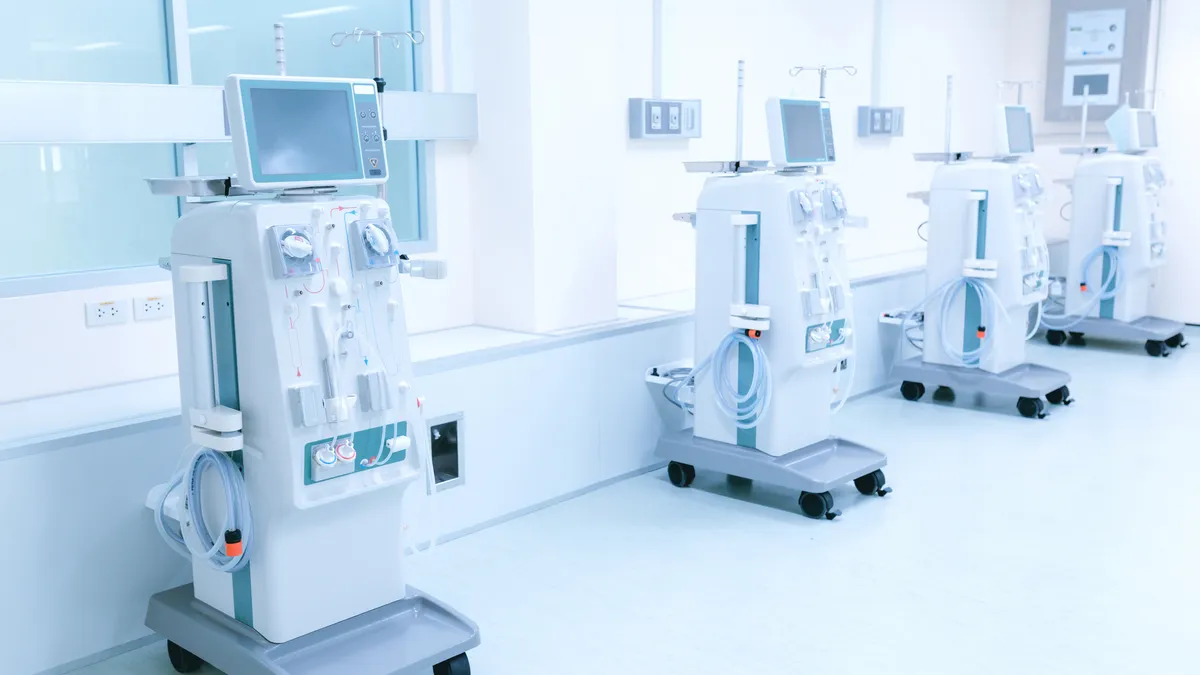COVID-19 is a global crisis, evolving at unprecedented speed and scale.
The MedTech industry is challenged as never before to re-imagine designs of mission critical devices, dramatically ramp-up production capacity, and get essential equipment such as ventilators and personal protective equipment to clinicians and patients on an immediate basis. Many MedTech companies are moving quickly to rise to the challenge.
We are seeing unprecedented product innovation in the race to fight COVID-19. Inventive engineers and clinicians are retrofitting or reimagining products in limited supply for new and expanded use. Regulatory agencies realize this and are adapting at a break-neck pace—foregoing standard, often lengthy processes to achieve speed-to-patient.
However, supply chain resilience continues to be tested as companies scramble to re-allocate and ramp-up manufacturing to address supply shortages and government protectionism. MedTech should adapt their supply chains—and collaborate across multiple industries where there are gaps—to urgently address these issues.
Meanwhile, MedTech service technicians, once prevalent in hospitals and operating rooms, are now not able to be physically present due to bans on non-essential personnel. The need to virtualize these once-physical interactions is critical, along with preparing for the surge of demand due to postponed procedures when activities normalize.
Act now with agility and responsible innovation
At this crucial time, the integrity and trust in MedTech companies are on a global stage. The chance to do things differently is upon us. MedTech companies can take swift action to help solve for the COVID-19 crisis with a mindset of responsible innovation--focusing on agility, affordability and outcomes—and emerge stronger than before. These actions center on four key areas:
1). Advance diagnostics & monitoring - Testing is an immediate challenge with the goal of obtaining reliable results, at speed, deployed at scale. We suggest a more intelligent, effective approach through digital solutions, predictive models, data, and analytics. Once global health stabilizes, the implementation of digital monitoring for infection risk can sustain success. Now: Target and scale throughput; Near term: Advance infection control
2). Re-define the product - Simplify, simplify, simplify. Design a minimally featured product—not necessarily a minimally viable product—to simplify manufacturability, distribution and to get more equipment, such as ventilators and beds, in the field. Beyond COVID-19, map and adapt your products from acute to at-home care where possible. Consider where consumer health tech may boost your reach and effectiveness. Now: Simplify and de-feature; Near term: Evolve with the Care Landscape
3). Assure supply & delivery - Global supply chain and manufacturing disruption demands increased visibility and transparency. MedTech should collaborate cross-industry to address projected shortages for life-sustaining supplies. The potential of advanced digital capabilities should be considered to provide visibility, augment operations, drive scenario modeling to build greater resilience and agility in supply chains and operations. Now: Pivot to Essential Products; Near term: Identify and Amplify Core Capabilities
4). Virtualize & ensure business continuity - Hospital lockdowns are preventing most MedTech sales reps from in-person interactions with healthcare providers and limited vital service technicians from being present during many procedures. Now is the time to modernize and digitize the workforce and in doing so, make your organization more integral and accessible to clinicians and patients. Now: Organize, listen, and engage; Near term: Rationalize priorities, lean on virtual
What's next for the MedTech industry?
Today the MedTech industry is responding to the immediate crisis; there is no time to make systematic changes. However, MedTech companies can adopt a new mindset of responsible innovation in your response--blending the need for agility, affordability, and outcomes. But COVID-19 is not just a short-term crisis. It will have long-lasting implications for how people work and how we will treat patients. As we emerge from this crisis, there are actions MedTech companies can take to sustain the ability to responsibly innovate and better serve the healthcare community.
1). Advance diagnostics & monitoring - Next: Establish a new diagnostic standard
2). Re-define the product - Next: Next generation products
3). Assure supply & delivery - Next: Normalize and sustain within the new ecosystem
4). Virtualize & ensure business continuity - Next: Rethink experience, accelerate scale
Read the full report here.






